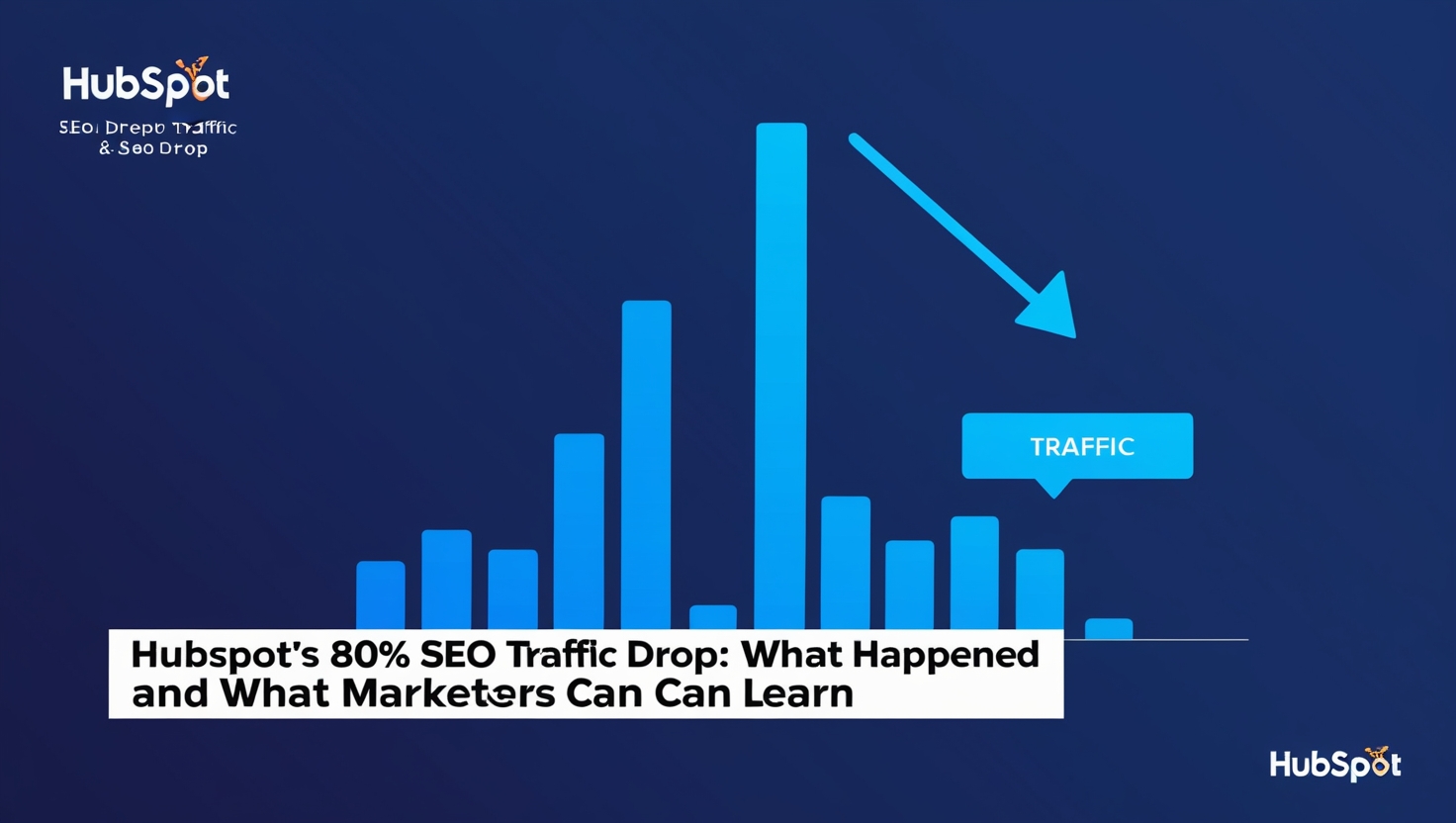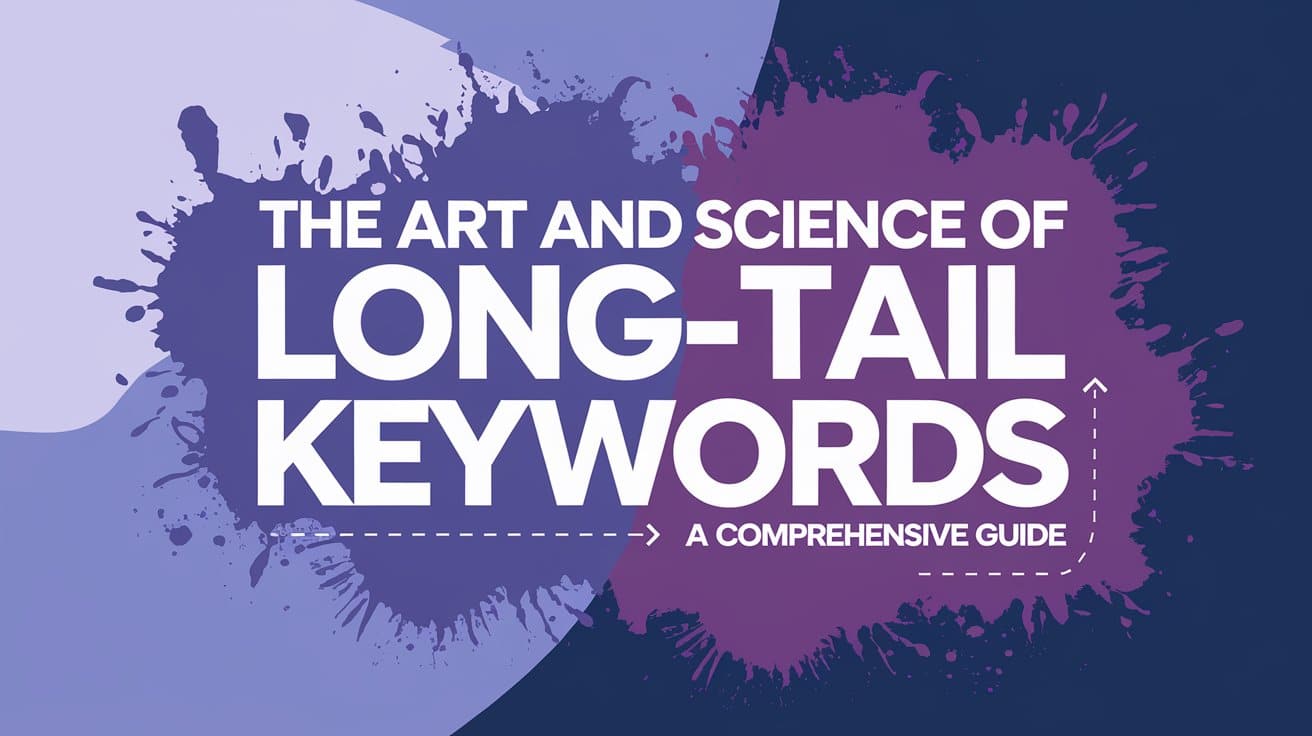In March 2024, HubSpot faced a major SEO setback: an 80% drop in organic traffic. According to Semrush, their traffic plummeted from 13.5 million in November 2023 to just 8.6 million by December. The biggest losses came from HubSpot’s blog, which had long been a go-to resource for marketers.
For a company known for its SEO expertise, this was a wake-up call. But what caused this sudden decline? And what lessons can marketers take from it?
Why Did HubSpot’s Blog Traffic Drop?
At first glance, it’s surprising that a company as SEO-savvy as HubSpot would suffer such a decline. But looking deeper, the reasons become clear.
1. Too Much Focus on High-Traffic but Irrelevant Topics
HubSpot had many high-ranking articles that generated massive traffic but weren’t directly related to its core business as a CRM platform. Some of these included:
- Famous sales quotes
- Cover letter examples
- Resignation letter examples
- Small business ideas
- Affiliate programs
While these topics attracted visitors, they didn’t align with what HubSpot actually sells: CRM, marketing automation, and customer service tools. Google’s 2024 algorithm updates placed more emphasis on content relevance, rewarding sites that focused on their niche and penalizing those with unrelated content.
2. Google’s Shift Towards Expertise and Relevance
Google has been refining its ranking algorithms to prioritise content that demonstrates Experience, Expertise, Authoritativeness, and Trustworthiness (E-E-A-T). Many of HubSpot’s most-visited pages were surface-level content rather than in-depth guides from industry experts.
For example, posts like “What is your greatest weakness?” and “Famous sales quotes” lacked deep insights or first-hand expertise, making them less valuable in Google’s eyes.
3. The Rise of AI-Driven Search
With tools like ChatGPT, Perplexity, and Google AI Overview (AIO) providing instant answers, users no longer need to click on web pages as often. This shift has hit sites that relied on top-of-funnel (TOFU) content, like HubSpot’s blog.
For example, if someone searches for “How to write a resignation letter,” AI-powered search tools can provide an answer instantly—without needing to direct traffic to HubSpot’s blog.
4. Declining Click-Through Rates from Search Results
Google’s increasing use of featured snippets, AI-generated summaries, and direct answers means fewer people are clicking through to websites. If Google can provide the information users need without them leaving the search results page, traffic to sites like HubSpot naturally declines.
What HubSpot Can Do to Recover
To regain its SEO momentum, HubSpot needs to focus on three key areas:
1. Prioritise Relevant, High-Quality Content
Instead of chasing high-traffic keywords that aren’t relevant, HubSpot should double down on creating CRM-focused content that aligns with its core business. This means:
- Producing in-depth guides on customer retention, CRM implementation, and automation strategies.
- Publishing case studies and real-world examples to showcase practical applications.
- Ensuring content is written by industry professionals, reinforcing authority in the space.
2. Clean Up Underperforming and Irrelevant Pages
Low-performing content can drag down a site’s overall authority. HubSpot should conduct a content audit to:
- Update or remove outdated, low-value pages.
- Redirect irrelevant pages to more useful, related content.
- Ensure every article aligns with its ideal customer profile (ICP).
3. Adapt to AI-Driven Search
HubSpot should embrace AI search trends by:
- Optimising content for AI-powered tools by structuring articles with clear sections and concise answers.
- Creating unique, in-depth content that AI-generated summaries can’t fully capture.
- Improving brand recognition, so users actively seek out HubSpot instead of relying on AI summaries.
4. Strengthen Backlink and Authority Signals
Google still values high-quality backlinks as a sign of authority. HubSpot should:
- Secure guest posts on industry-leading websites.
- Publish original research and reports that earn natural backlinks.
- Collaborate with trusted SaaS and marketing publications to increase credibility.
Key Takeaways for Marketers
HubSpot’s SEO decline isn’t just a one-off case—it’s a lesson for all content marketers. Here’s what you should learn from their experience:
1. Relevance Matters More Than Traffic
It’s not about how much traffic you get; it’s about whether that traffic is relevant to your business. If your content doesn’t align with what you sell, Google (and your audience) won’t find it valuable.
2. Thin Content No Longer Works
Publishing generic, surface-level articles won’t cut it. Google favours well-researched, in-depth, and expert-driven content.
3. SEO Is Always Changing—Stay Agile
Google updates its algorithms regularly. Keeping an eye on trends and adapting your strategy is key to staying competitive.
4. AI Search Is Here—Optimise for It
AI-powered search tools are reducing website traffic. Make sure your content is structured for AI readability and provides insights beyond what an AI can summarise.
5. Regular Content Audits Are Essential
Don’t let old, irrelevant content drag your site down. Regularly audit your blog to ensure every page aligns with your brand and audience.
Final Thoughts
SEO is no longer just about ranking for the highest-volume keywords. Google now rewards authority, expertise, and relevance over sheer traffic numbers. HubSpot’s experience is a reminder that focusing on the right audience with the right content is more important than ever.
For marketers, the message is clear: adapt, refine, and stay focused on what truly matters—helping your audience with content that serves a genuine purpose.
For a more in-depth analysis, you might find this video insightful:







